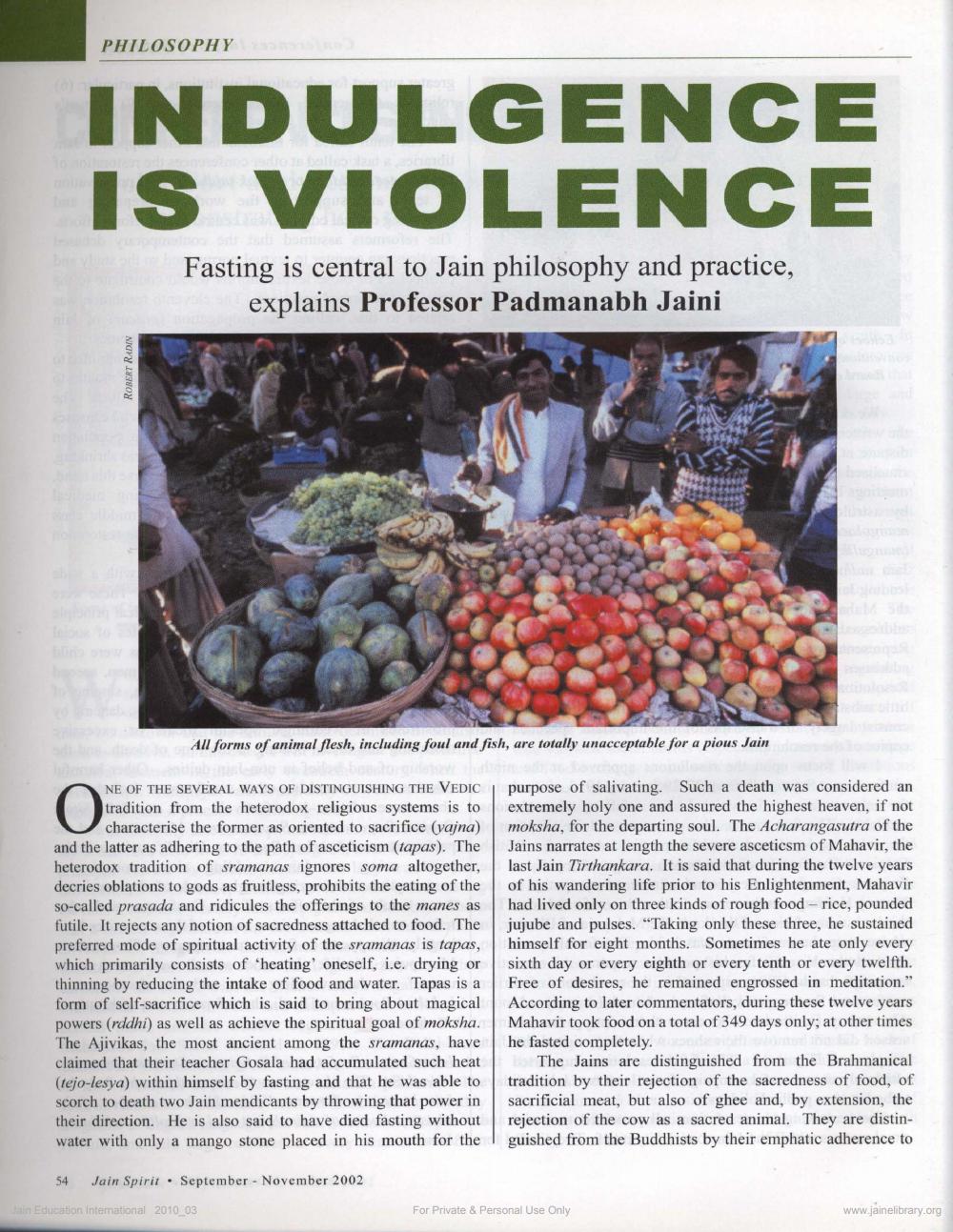________________
To anth
PHILOSOPHY
INDULGENCE
IS VIOLENCE
Fasting is central to Jain philosophy and practice, explains Professor Padmanabh Jaini
bas vindp
54
ROBERT RADIN
bling w
and the latter as adhering to the path of asceticism (tapas). The heterodox tradition of sramanas ignores soma altogether, decries oblations to gods as fruitless, prohibits the eating of the so-called prasada and ridicules the offerings to the manes as futile. It rejects any notion of sacredness attached to food. The preferred mode of spiritual activity of the sramanas is tapas, which primarily consists of 'heating' oneself, i.e. drying or thinning by reducing the intake of food and water. Tapas is a form of self-sacrifice which is said to bring about magical powers (rddhi) as well as achieve the spiritual goal of moksha. The Ajivikas, the most ancient among the sramanas, have claimed that their teacher Gosala had accumulated such heat (tejo-lesya) within himself by fasting and that he was able to scorch to death two Jain mendicants by throwing that power in their direction. He is also said to have died fasting without water with only a mango stone placed in his mouth for the
Jain Spirit September November 2002
Jain Education International 2010 03
ba
Armed that
jubile
All forms of animal flesh, including foul and fish, are totally unacceptable for a pious Jaindoo dewer than NE OF THE SEVERAL WAYS OF DISTINGUISHING THE VEDIC tradition from the heterodox religious systems is to
uned!
For Private & Personal Use Only
oljarbosi dal 3ds
colo
purpose of salivating. Such a death was considered an extremely holy one and assured the highest heaven, if not moksha, for the departing soul. The Acharangasutra of the Jains narrates at length the severe asceticsm of Mahavir, the last Jain Tirthankara. It is said that during the twelve years of his wandering life prior to his Enlightenment, Mahavir had lived only on three kinds of rough food rice, pounded jujube and pulses. "Taking only these three, he sustained himself for eight months. Sometimes he ate only every sixth day or every eighth or every tenth or every twelfth. Free of desires, he remained engrossed in meditation." According to later commentators, during these twelve years Mahavir took food on a total of 349 days only; at other times he fasted completely.
The Jains are distinguished from the Brahmanical tradition by their rejection of the sacredness of food, of sacrificial meat, but also of ghee and, by extension, the rejection of the cow as a sacred animal. They are distinguished from the Buddhists by their emphatic adherence to
www.jainelibrary.org




